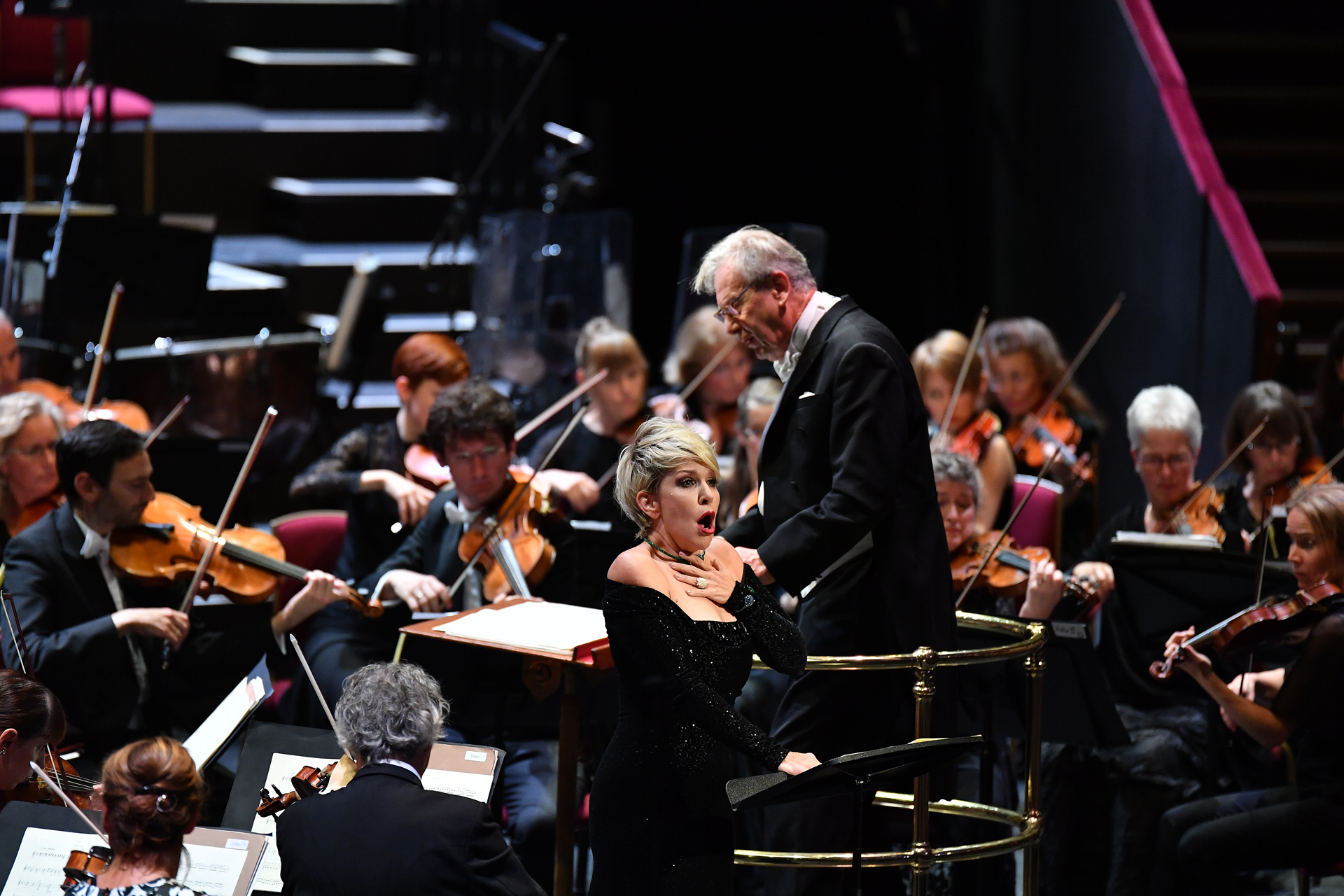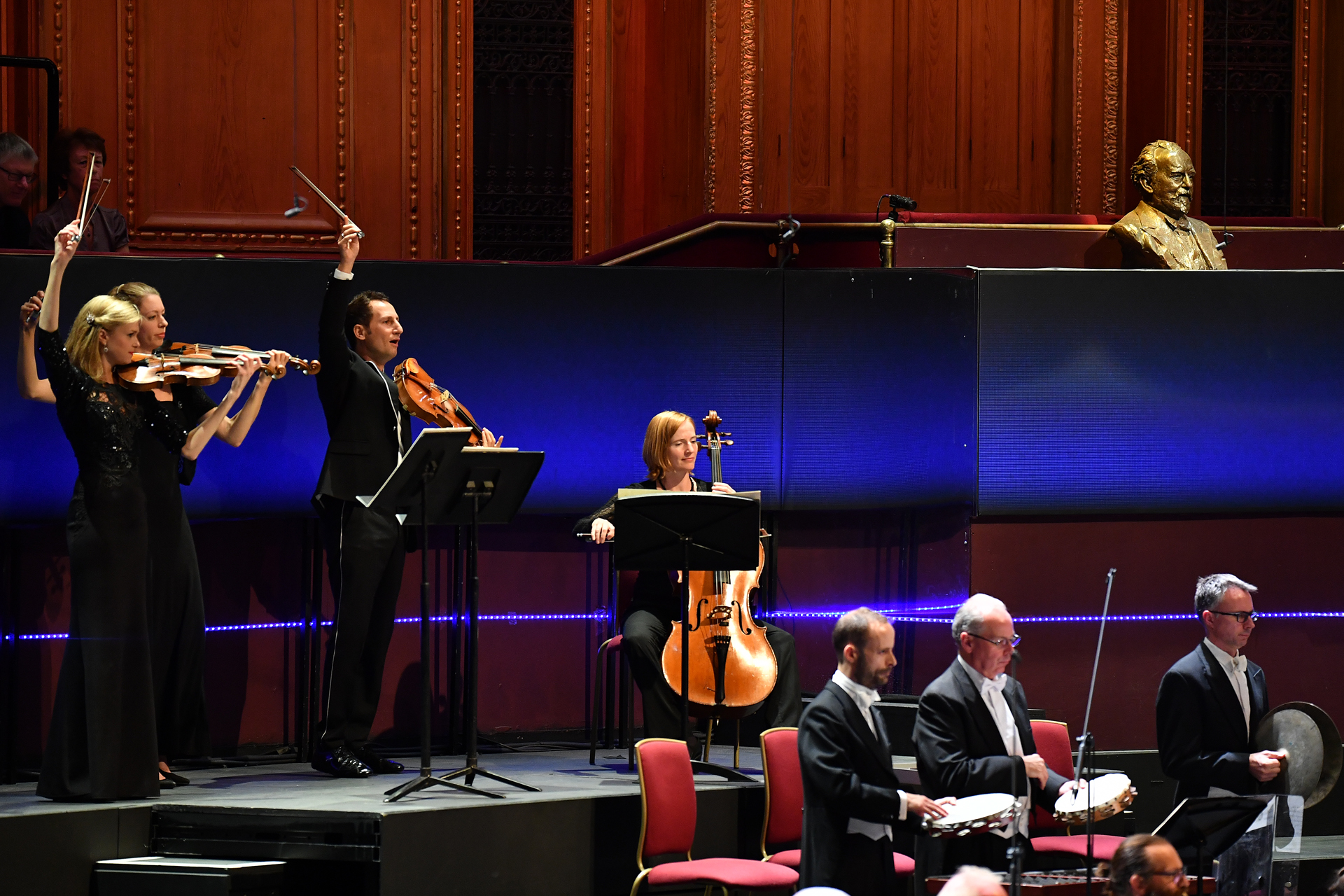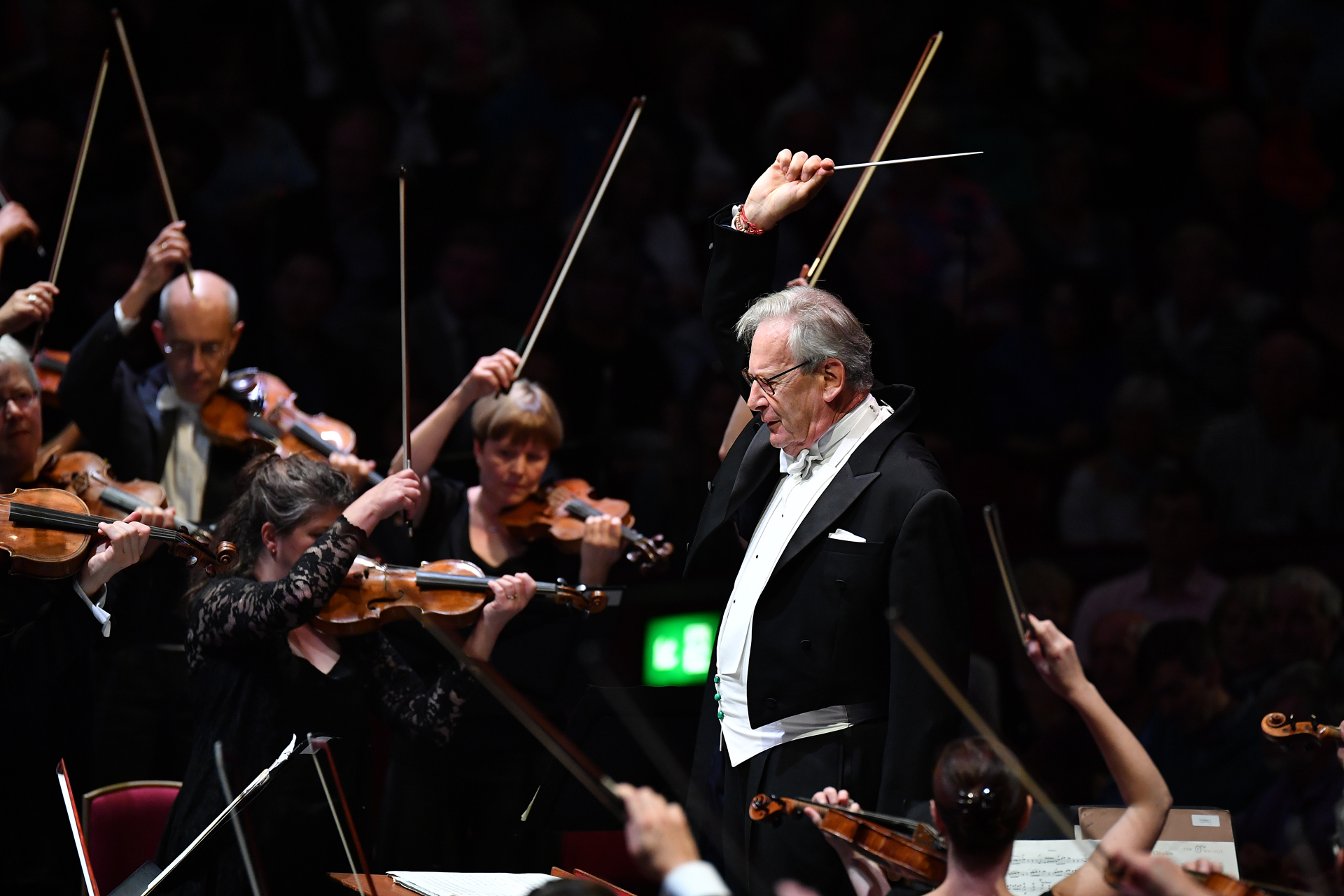Prom 71, DiDonato, Tamestit, ORR, Gardiner review - concert Berlioz as bracing theatre | reviews, news & interviews
Prom 71, DiDonato, Tamestit, ORR, Gardiner review - concert Berlioz as bracing theatre
Prom 71, DiDonato, Tamestit, ORR, Gardiner review - concert Berlioz as bracing theatre
A dramatic feast for the eyes as well as the ears, this should have been on TV
How do you make your mark in a crucial last week after the Olympian spectaculars of Kirill Petrenko's Proms with the Berlin Philharmonic?
Or nearly. If there were a moment or two when this mind wandered ever so slightly from the enriching but exhausting brilliance of it all, they would have been when Joyce DiDonato pushed the middle to upper register as Cleopatra approaching her death. Here there simply isn't the opulence of an ideally upholstered mezzo voice like that of Karen Cargill, who somehow owns this "dramatic cantata". But how DiDonato atones for any shortcomings in a less than god-given instrument: you could say she lives the role with the intensity Balzac describes in the great Racine actress Rachel. 
DiDonato did a marvellous job of plunging us into the last moments of the far less volatile Dido of Les Troyens, all hushed pathos and nostalgia, though it’s difficult to make the reminiscence of her love duet with Aeneas move us to tears out of context. The Proms palm here still goes to Anna Prohaska’s Purcell in her Cleopatra/Dido adventure with the extraordinary Il Giardino Armonico. Before the suffering of Berlioz’s Carthaginian queen, though, came the Royal Hunt and Storm which leads to the lovers’ consummation. Spatial effects here were wondrous, with saxhorns coming closer from left and right, onstage and off. There was another surprise, the source of which I've only discovered from an orchestral player tweeting about this review - the ululating chorus, uncredited in the programme, which I thought was a recording, was actually delivered by the orchestra. Extra kudos. 
Tamestit’s Harold/Hector had free rein to wander and watch the pilgrims of the second movement in evening prayer and arpeggiate gently, finally raising one hand to his brow as they disappear into the distance. Oboist Michael Niesemann was fearless in making a rough rustic sound as an Abruzzo highlander leading the Serenade which follows. And then we were among the brigands, who threatened to swamp our hero, only for Tamestit to escape and join seraphic solo violinists and cello as a string quartet remembering the pilgrims in a higher sphere (pictured above). 
If orchestras and conductors want to make their concerts more enticingly visual, forget the lights or the elaborate artworks; let the performers create the drama. This is the way forward, if only in special circumstances. Criminal that it wasn't filmed for transmission on BBC Four – but then I doubt if planners could have anticipated what Gardiner the impresario intended. He always has surprises up his sleeve in this, his golden age.
rating
Share this article
The future of Arts Journalism
You can stop theartsdesk.com closing!
We urgently need financing to survive. Our fundraising drive has thus far raised £49,000 but we need to reach £100,000 or we will be forced to close. Please contribute here: https://gofund.me/c3f6033d
And if you can forward this information to anyone who might assist, we’d be grateful.

Subscribe to theartsdesk.com
Thank you for continuing to read our work on theartsdesk.com. For unlimited access to every article in its entirety, including our archive of more than 15,000 pieces, we're asking for £5 per month or £40 per year. We feel it's a very good deal, and hope you do too.
To take a subscription now simply click here.
And if you're looking for that extra gift for a friend or family member, why not treat them to a theartsdesk.com gift subscription?
